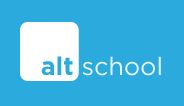Can Technology Transform Education?

Schools still adopt the same teaching method since the 19th century [i]. Can AltSchool scale a more efficient and fun learning experience?
AltSchool: a 21st century solution
The advent of technology quickly captured teenagers’ attention; In the US, they spend 9 hours a day consuming digital content[ii]. In such a digitalized and interactive world, schools were left behind. They still assume students can learn by passively watching classes, in one single pace, despite differences in individual learning curves.
Founded by a former Google executive – Max Ventilla – and funded by both Mark Zuckerberg and VC firm Andreesen Horowitz, AltSchool bets on the development of hardware and software to create personalized education plans. The solution creates value and provides a feedback loop among the three main parties involved in the educational process:
- Students have their own playlist – a personalized to-do list where they can find assignments, communicate with teachers and submit their work. The tool allows students to adapt learning to their own pace and is more interactive than traditional formats.

- Teachers tailor content on a student basis, promoting “child-centered learning” and following individual natural interests. The tool provides a comprehensive portrait of a student’s progress in all subjects, including social-emotional development and interests and passions[iii]. Through the software, teachers can assign interactive educational models based on each kid’s needs, track attendance and provide feedback. According to the Teacher’s Dream Classroom Survey, 70% of teachers feel that technology – via their own online resources – enriches the classroom experience[iv]. Because the tools streamline tasks, educators can spend more quality time with students, review their progress and provide them with feedback. By tracking students’ trajectory, success patterns and areas that need support, teachers can better plan and adapt future learning experiences.
- Parents have a view of their child’s individual progress, manage logistics and communicate to teachers though “my.altschool” tool.
Teaching how to grow
Different from other education-tech companies, AltSchool goes beyond an application to support math and reading learning. Instead, it operates its own schools. It started in 2014 with a single San Francisco classroom with 20 students[v] and now runs eight schools in California and New York[vi]. The fast growth demonstrates an opportunity for AltSchool to expand its operations and to potentially sell its license to other schools in the future.

Despite its premium price – around $21,000 per student a year – the founder expects to scale the model down to a point where the price is slightly higher than educating a child in the public system. To do so, AltSchool will have to overcome some challenges and adapt key elements on its current operation:
- Scale x Cost reduction (the chicken and egg situation): different from products, a fundamental property of digital technology states that once an investment in network and/or infrastructure is made, there should be no (or minimal) incremental cost in extending it to a new user[vii]. Thus, it is natural to expect a higher cost during the launch phase, as AltSchool is still working on developing and improving its tools.
- Organizational Components as enablers to value creation:
- People: recruiting high quality teachers, adept at technology and who relate to the company’s vision will be crucial, despite expensive (some teachers at AltSchool earn about $100,000 a year). AltSchool will also have to hire software developers and engineers, roles that don’t exist in conventional schools.
- Culture: should reflect AltSchool’s enablers for growth, such as excellence, collaboration, innovation and autonomy to educators to personalize teaching.
- Critical Tasks: integrating technology with the world of lived experience will be key to provide students with complementary learnings. AltSchool already ensures that the majority of the work is completed off screen[viii], but it could go beyond and develop in-group experiences to incentivize collective learning and interaction among kids.
- Formal Organization: AltSchool should develop processes and establish incentives focused on its platform improvement and students’ performance.
Kids may learn… but are they safe?
While working on scaling its business, AltSchool needs to carefully assess important risks to its operation. Security and data privacy are important hurdles for digital models, according to a study on Industrial Internet of Things[ix]. With a great understanding of children’s behaviors, activities, preferences and passions, AltSchool is developing a unique database that will potentially attract several companies.
To mitigate the risk, AltSchool should leverage its expertise in technology to protect its company from external threats. It is crucial that it develops strict safety controls to avoid external attacks and that it only uses data to the purposes of the school experience or to any other that the parents may agree with.
What’s next?
By focusing on delivering its customer promise on a safe environment, AltSchool will be able to lead the educational transformation we have all been waiting for. After all, who doesn’t want schools to be efficient, fun and high tech?
[794 words]
Sources
[i] “Leadership at Every Level: Appreciative Inquiry in Education”, John Hopkins School of Education website, http://education.jhu.edu/PD/newhorizons/Transforming%20Education/Articles/Understanding%20Why%20Education%20Must%20Change/, accessed November 2016.
[ii] Vicky Rideout, M.A., VJR Consulting Inc., “The Common Sense Census: Media use by tweens and teens”, 2015, p.15, https://www.commonsensemedia.org/sites/default/files/uploads/research/census_executivesummary.pdf, accessed November 2016.
[iii] Tech Crunch, “Altschool Raises $100M From Founders Fund, Zuckerberg To Scale A Massive Network of Schools Around Personalized Learning”, May 2015, https://techcrunch.com/2015/05/04/altschool-raises-100m-from-founders-fund-zuckerberg-to-scale-a-massive-network-of-schools-around-personalized-learning/, accessed November 2016.
[iv] Dan Soulas, “Teacher’s Dream Classroom”, 2016, p.8, http://www.edtechroundup.org/uploads/2/6/5/7/2657242/edgenuity_dream_classroom_report_033116_final.pdf , accessed November 2016.
[v] Bloomberg, “Mark Zuckerberg and Silicon Valley VCs invest $100 million in a start-up elementary school”, 2015, https://www.bloomberg.com/news/articles/2015-05-04/mark-zuckerberg-and-silicon-valley-vcs-invest-100-million-in-a-startup-elementary-school, accessed November 2016.
[vi] “Press”, AltSchool website, 2016, https://www.altschool.com/altschool-opens-new-schools-in-manhattan-and-san-francisco, accessed November 2016.
[vii] Marco Iansiti and Katim R. Lakhani, “Digital Ubiquity: How Connections, Sensors, and Data are revolutionizing Business”, 2014, p.4, https://services.hbsp.harvard.edu/services/proxy/content/56157960/56157962/1158b6f8f146cc2d02207d5ab2521095, accessed November 2016.
[viii] “Education”, AltSchool website, 2016, https://www.altschool.com/education#technology, accessed November 2016.
[ix] World Economic Forum, “Industrial Internet of Things: Unleashing the Potential of Connected Products and Services”, 2015, p.4, http://www3.weforum.org/docs/WEFUSA_IndustrialInternet_Report2015.pdf, accessed November 2016.





HI e-TOM, thank you for your article! I really enjoyed reading it and finding out about AltSchool. I totally agree with you that technology and social media are shaping how the next generation of students understands the world and learn. In my opinion what makes it particularly important is that it shifts the focus from content to connections (to how to find the right content). In fact, in the future students will not be required to know everything, they will be required to know how to get the information needed, in the least amount of time. Deloitte has recently published an article (link below for reference) that focus exactly on that. According to the article, digital education can address three goals; (i) fortifying student skills, (ii) increasing education’s ROI, and (iii) enabling students to be innovative and entrepreneurial. In that context, AltSchool efforts will be of great help.
You mentioned in your post that there are three main parties involved in the education process (i) students, (ii) teachers and (iii) parents. However, as you will see in Deloitee’s article, maybe it is desirable to expand that network, to create an integrated digital education ecosystem composed of parents, teachers, peers, and administrators, as well as individuals outside the formal educational system such as mentors and potential employers, to form a collaborative network to deliver instruction to and guide the student at the center of the ecosystem. Also, it could also be desirable to integrate students with the real life in order to make the learning experience more meaningful for students. Finally, it would be good for AltSchool to reach as many students as possible (specially those underprivileged). However, for that, the cost of the access to AltSchool (today at USD 21,000) needs to be reduced. That reduction should also happen fast, as other competitor in the market (like Coursera) are offering educational content for free and might kill the market for AltSchool.
This is very true, @student12! The whole school community should be involved and integrated into the platform. I think this should definitely be a next step for AltSchool moving forward.
Great Article! I often wonder how technology will impact education and where high skill valuation will fall with the next generations. I am concerned that education continues to rely on the traditional methods of teaching, and it has not developed quickly enough to assist the next generation in technology use and management, especially since tech continues to rapidly innovate.
I like the idea of the AltSchools, but I am concerned that they will not be able to reach enough students. Do you think our educations systems will be able to adapt in order for students to develop their tech-skills or will this responsibility lie with parents who are able to afford technology in their home?
Thanks for the article! There’s no doubt that technology is revolutionizing the education industry, and I’m inspired by organizations such as Khan Academy and Altschool. However, I worry that too much emphasis on technology and finding the right answer vs. knowing information is diminishing certain skills in younger generations. Thanks to my consistent access to Google Maps and Excel, my mom’s capacity to navigate in a new place or do mental math far exceeds mine. It would be great if AltSchool actively combated this by emphasizing off-screen critical reasoning activities.
The same goes for face-to-face interactions; we talked a lot about emotional intelligence in Field Foundations, and I feel that technology is reducing the time and quality of our off-screen interactions. For this reason, I lean more towards the brick-and-mortar AltSchools as the status quo. The online-only versions are certainly necessary in some cases, but I think it has significant drawbacks for helping children develop interpersonal skills.